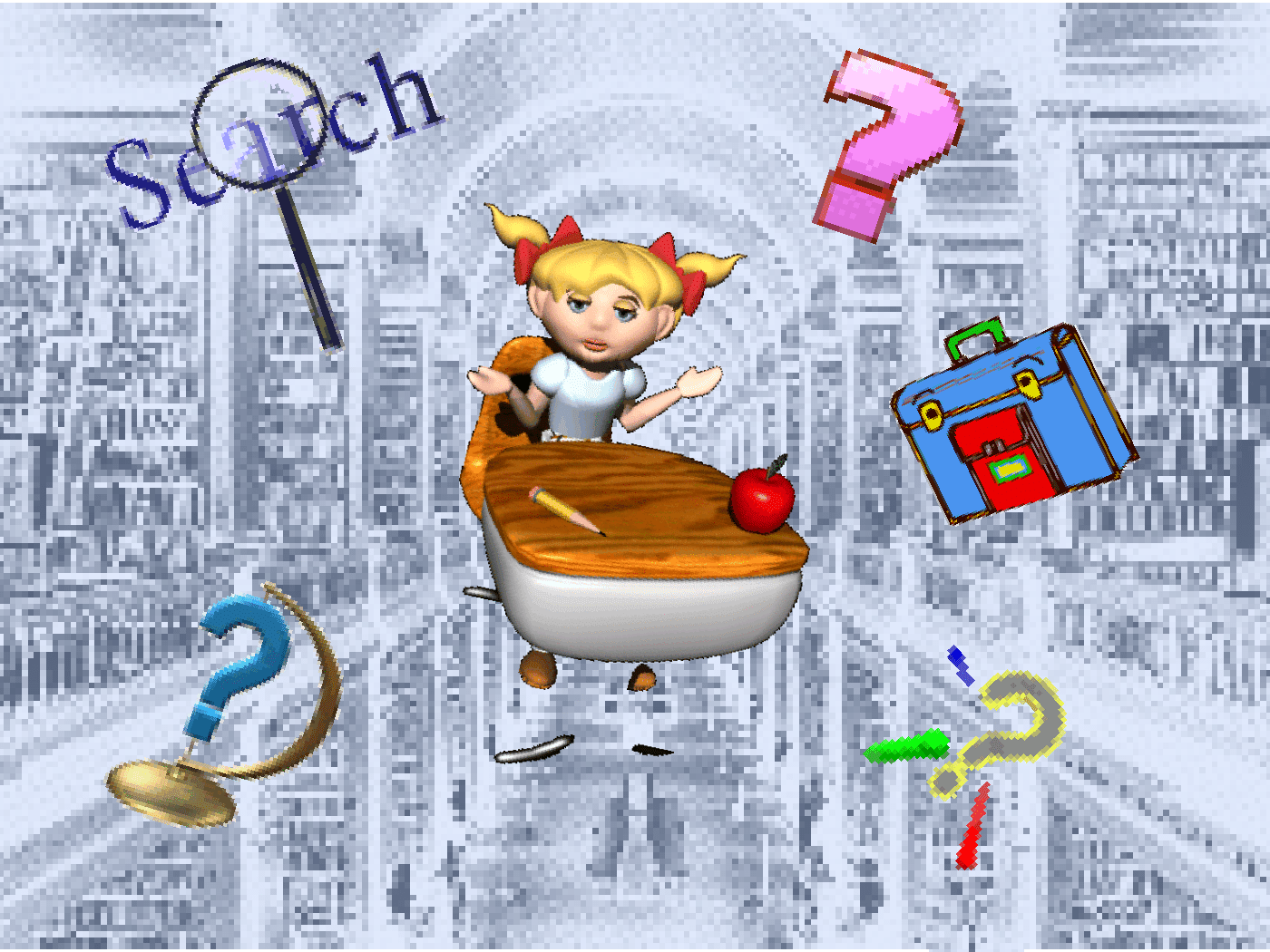Not everyone knows how to find information when they go online! Finding information is not just about getting what you want; it’s about knowing what you want and being open to what you don’t know you need. It’s an adventure and an expansion of your knowledge, but also of who you can be within the world!
This guide will give you some pointers that I’ve learned over the years to help you find information and explore your ideas with the power of the web!

- Search Engines - these tools allow you to search using words!
- Video sites - particularly useful for practical demonstrations or historic footage
- AIs - often overrated, but can be useful for answering quick and esoteric questions!
- Reference material - Books and first-hand resources
- Asking Questions - message boards, forums and emails
Tools that can offer information:
We will discuss and examine each kind of tool in more detail, but first I’d like to make sure you understand what a question is. What is a question? And when do you need to ask one?
- Consider what you know - e.g. you know what size your dog is, you know you want the house to be pink, you know it will rain outside etc.
- Consider what you don’t know - e.g. you don’t know what material to make it from, etc.
- Combine what you do know and what you need to know into a question! e.g. You don’t know the material to use, but you do know it will be rained on, so you might ask “What’s a good material to keep the rain out”?
- Consider if that’s a good question. Is it? Kinda.. it’s a bit vague and we forgot that we know we can’t work metal, or plastic, both of those can keep the rain out. Perhaps wood is the only option ... so what we need is “Can I rainproof wood?” - That’s a good question!
- Do your search and gather what you learn - in this case, you might find that paint or oil is good for rainproofing wood, and only paint comes in pink! Add what you learned to your list of what you know.
- Repeat! - Keep doing this until you know everything you need, and you no longer have anything important that you don’t know - at this point, there are no more valid questions! (there are always more valid questions)
Imagine you need to build a house for your dog:
Asking a question is always about understanding yourself! What you know and don’t know, what you can and can’t do, and what you believe is possible or impossible.
Everything is possible and everything can be understood, it’s just a matter of time and taking small steps.

Search Engines:
A search engine (Like Google) is the most basic tool you can use to find information - search engines are essentially robots that explore the web automatically and make a list of things they find, which you can then search! Search engines are great when you loosely know what you need to search and you want to find webpages with more details.
It’s important to understand that a search engine is not a person - you don't ask a search engine questions, you give it terms: Instead of “How do I rainproof wood?” you search “rainproofing wood DIY”, that’s three terms.
Search engines are fantastic tools and they allow you to do a few special actions with your terms; for example, imagine you wanted to search for web revival, but you wanted to see results that were unrelated to MelonLand.
You could try this: web revival -melonland the - symbol means, don’t include results with this word!
However, you may notice you’re getting results that include the word revival but are not related to the web.
That’s because revival and web are separate terms, but we can join them using quotes: “web revival” -melonland now every result must include the phrase “web revival” and should not include the word melonland!
- DuckDuckGo Operators
- Google Operators
These are called search operators and they are hella useful! There are also lots more and I recommend looking up what operators your search engine has:
Speaking of which, DuckDuckGo is a great privacy-friendly search engine that I encourage everyone to use; but sometimes it won't have what you need. Don’t be afraid to try your search on multiple search engines! Especially more obscure ones like Marginalia or Wibly that may offer more unusual results!
I’d also note that many search engines also have tabs that allow you to search images, videos and news articles. These can be useful; especially if you’re a visual person, you can use the images tab to find something that looks like it’s related to what you want; then visit the webpage that the image originated from to see if it has the info you need!
- Never click the first link, it’s usually sponsored.
- Avoid links that sound too good to be true “How do I YOUR EXACT SEARCH TERMS”
- Avoid results that have a number in their title “7 ways to rob a bank” etc
- If a site feels like it’s wasting your time, it is, leave it!
- Add “wiki” to your search to get encyclopaedia entries
- Add “reddit” or “forum” to the end of your search.. it helps find real discussions.
- If you're not getting good results, try slightly different terms and focus on specific words
Finally, it’s important to know how to pick your results on a search engine! What links should you click? Generally speaking, I follow these rules:
Finally, finally, I want to mention the existence of directory sites like Curlie - these sites contain huge lists of hand picked links sorted into categories by humans, and they usually allow you to search as well! Iv never personally found directories as useful as search engines, but you might love them, so I wanted you to know they exist!

Video Sites:
Video sites are sites that host video content, like YouTube or even TikTok! The thing you need to understand about video sites is that 95% of your time will be wasted by them, the other 5% is extremely useful!
Video sites are great if you need practical demonstrations like how to dismantle a car alarm, or if you want a summary of a wider topic or old footage such as David Bowie’s views on the internet.
YouTube in particular uses the same search system as Google and allows you to use operators in the same way as a Google search!
If you are following a particular subject and you find an interesting video it can be a good idea to look at other videos uploaded by that person which may be similar. Additionally, while YouTube comments tend to be nonsense, it’s worth giving them a skim! I found one of my favourite YouTubers (LGR) after he commented on a video about clock-making!
- If you’re watching a longer tutorial, use the playback speed setting to get through it faster
- Check to see if the video has chapters that might jump to what you need!
- Check the upload date and view count to make sure it’s relevant for you
- If the video has no narrator, or the narrator is just talking about themselves, skip it!
- Avoid videos where the thumbnail has overlay text or someone making a silly face
- Think of videos as a way to explore, let them introduce you to new things
- If there is something in a video you don’t know or find interesting, pause and search for it!
- Remember that even unrelated videos can give you ideas for what you're working on!
- Set a time limit, don’t spend all day watching videos!
How to get the most out of video searching:

AIs:
AIs, Language Models, GPTs or chatbots, whatever you wanna call them; some people horribly overhype them, and some people deeply dislike them. I’m gonna take them for what they are; one more tool in your searching toolbox that can be useful if used wisely.
Unlike a search engine, AI is conversational, meaning you search with human questions like “Can rocks dream?”. Each AI has a different set of knowledge and quality of answers, and the one you pick will have a big impact on the info you get! You can try ChatGPT, Copilot/Bing or even one of those virtual friend AIs like Replika.
AIs are primarily good for summary searches where you need a complex bit of info compressed into a small answer, for example, “I live in Barbados but my friend is in a time warp version of Paris that is 2 hours behind real Paris time, what time will it be for her if I call her at 5pm?” or “What were the key topics discussed in Ted Nelson’s zine called Dream Machines”
It’s important to understand that the questions (called prompts) you give an AI are extremely important; you need to be concise and specific; don’t assume the AI understands anything. Commanding an AI is not like talking to a real person, it’s more like playing a musical instrument; you push it in particular ways to make it play the notes you want.
The best way to do this is to give the AI context e.g. “Suppose pigs could fly, how fast could they travel to the Moon” will give you an answer (41 days apparently!) whereas “How fast could pigs fly to the moon” will make the AI say “sorry pigs can’t fly!”.
I don’t recommend using AI to generate content for you because that’s lazy and the content it generates is rather bland (and possibly unethical due to stolen source material), but as a tool for exploring and understanding large topics, it can be amazing!

Reference Material:
This one is a big topic but I won’t spend a long time on it, other than to remind you that not all knowledge is pre-indexed for you. Often the best ideas have not been thought of yet and you won’t find them on any search engine or in any youtube video, so you’ll have to build them yourself from reference material.
Exploring reference material can be a complex task. You have to find sources of information, you have to compare those sources, determine if the information they contain is good and valid, and finally, you have to combine that information to create new ideas and connections. Its hard work, but its one of the most exciting ways to discover new info!
- Books, newspapers and magazines
- Wikipedia and other encyclopedias
- Movies or videos
- Conversations or interviews
- Observation and experience
- Academic studies
- Dreams and music
- Objects and artefacts
Sources of information:
Where you find these things will depend on what you're researching, but a great place to find books and academic studies is Google Scholar Search, for other things I recommend the Internet Archive - however, sometimes you may have to order or borrow a book or piece of media that not on the web yet!
A quick example: Suppose you have an idea to make a homepage that looks like the inside of a 1970s lawnmower! Chances are you can’t just search “How do I make a website like a lawnmower?”… So you would want to research 1970s lawnmowers, look at magazine ads for them, videos of old lawnmowers, memories you have of using an old lawnmower, and maybe even look up old patents for lawnmowers. Then you can combine all of that information into a collection of ideas you can use to design your site!
I’d also always recommend exploring the context of things; e.g. who Invented the lawnmower? What was the first company to sell lawnmowers? Where were they founded and do they still exist? How has the idea of lawns influenced pop culture? What movies focus on lawns?

Asking Questions:
Sometimes you just can’t find what you need, and that’s when it’s time to consider asking a question on a forum, Discord chat or by e-mail. Don't worry its not scary, but you’ve also gotta be patient because the responses may be slow, unhelpful or may only offer you a direction instead of an answer. Chances are that if you can’t find a piece of information online, no one else can either, so questions are best suited to getting opinions, brainstorming ideas or sanity-checking your work to get feedback you might not notice alone!
Remember that someone answering your question is time they have given to you, it’s a gift, and even if it doesn’t give you exactly what you want, it’s important to be polite and thankful.
- Find a forum/chat related to the subject you’re exploring and/or the e-mail of an expert!
- Search the forum/chat to see if your question has been asked before
- Check the rules or guides to see if they want questions asked in a particular way
- Write very clearly, explain your question in detail, and what you have done to figure it out so far
- If it’s a technical question, include your code or other technical details
- Wait! Allow a few days for people to answer your question
- Thank people for the answers and provide extra info if they ask for any
- If the question is answered or you figure it out alone, write a summary of how it was solved so people in the future don't need to ask it again!
- Don’t be upset if you don't get an answer and keep trying to solve your issue!
Here are some tips for asking good questions online:
Asking questions can be hard work, but if you're stuck it’s a handy way to get unstuck, and sometimes just writing out your question will help you solve it!

Final Notes:
The web is full of amazing information, so much so that you could spend your whole life learning things and never find a repeat! There’s no reason to be bored in this world and there’s no reason to ever give up hope that there’s more to be discovered or connected.
I do want to close with a reminder though that the web also contains a lot of bad information; that’s information that exists to manipulate, use or misguide you. You’ll have to judge this based on your experience, but I would also suggest you judge it with your heart. Is the information you're getting coming from a place of love for knowledge, or is it trying to upset you? Good information should make your world bigger and more inclusive, it won’t always be easy, but it also won’t push ideas or people away!
I hope you have a wonderful time gathering and exploring information! And I hope you’ll write down what you’ve learned on a website, blog, paper or other medium! The free and open exchange of ideas, emotions and knowledge is one of the best things anyone can do to participate in humanity and improve the world :^]
This article was written by Melon on the 2/2/2024!